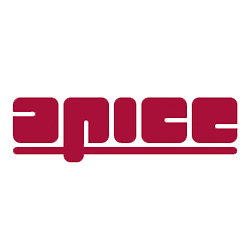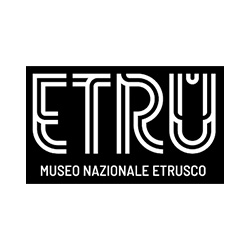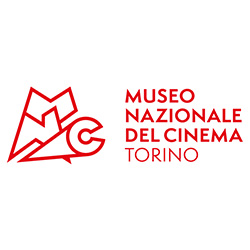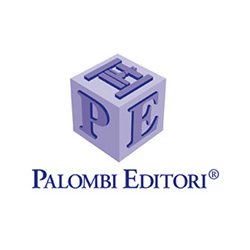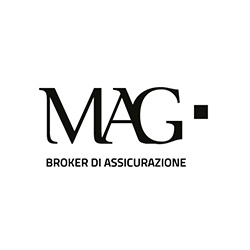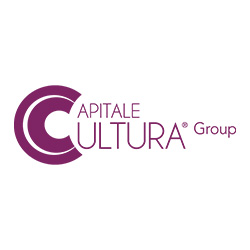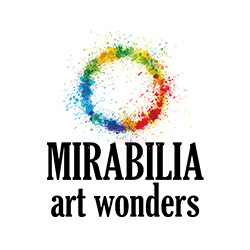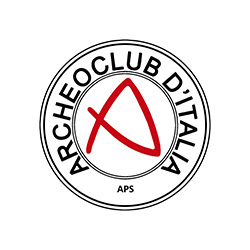Registrations are open
September 2024
Purposes
The greatest transformations in the field of cultural heritage related to the social role of cultural sites, as set out by ICOM (International Council of Museums), must be "at the service of society and its development", "open to the public, accessible and inclusive", promote "diversity and sustainability", operate "ethically and professionally and with the involvement of the community, offering diverse experiences for education, enjoyment, reflection and knowledge sharing".
In Italy, the evolution of the global role of cultural sites was reflected into a series of profound transformations, implemented over the last ten years by the Ministry of Culture. Said revolutions require the adoption of new skills and professionalism, which are necessary to adopt a managerial vision and develop new models of cultural heritage management: all this in order to pursue the social and enhancement objectives invoked both by national and international bodies and by the users of cultural venues themselves.
The skills that so far have not been required of museum directors, officials and operators of cultural sites relate to topics that are not investigated during university studies in History of Art, Archaeology and Architecture: communication and marketing, the use of new technologies, the activation of relations and synergies with the tourism sector, audience development and customer experience, sustainability, optimisation of the relationship between the public and private sectors, the ability to attract financial resources, a new cultural accessibility and, more generally, the acquisition of management and financial skills.
In this instance, the Master fully meets the new needs to expand and specialize the managerial skills of the employees of the Public Administration or those who want to specialize in the field of management, valorization and promotion of cultural activities.
The aim of this educational pathway is to provide the competencies and skills required in order to adopt a management vision and develop innovative models of management and valorization of the invaluable artistic and cultural heritage of our country.
Target students and career opportunities
The Master is aimed at students who are already working or are aiming to work in the the field of cultural heritage, both in the public and private sector.
The aim of the Master is to provide training for the following professional figures:
- museum directors
- managers of private companies providing cultural services
- consultants of public institutions responsible for the management and valorization of the cultural heritage
- curators and organizers of exhibitions and events
- developers of innovative cultural products
- consultants for cultural companies and creative industries
- experts in marketing and communication of cultural heritage
Admission
The candidates of the Master must be in possession of a Specialist Degree, Master's Degree and/or "old system" Degree attained at an italian University or an equivalent institution, provided that said institution is recognized in Italy.
The candidates in possession of an academic title obtained abroad must be in possession of the declaration of value of the aforementioned qualification, issued by the competent Italian diplomatic or consular representatives of the country in which they obtained the qualification.
The requirements must be fulfilled and demonstrated by the deadline provided for in the application form, under penalty of non-admission to the Master's selection test.
Tuition
The annual tuition, without tax benefits, for the registration to the Master is € 10.000
Registration
Students wishing to enrol may request an appointment with the Guidance Office by calling +39 06 3400 6000
Internal Faculty
The internal Faculty is comprised of more than 70% of professors with over-five-year professional experience on the subject.
Scientific Director
Lorenzo Soave
A cultural heritage manager with over 20 years' experience in the conception and development of business models and enhancement, communication and marketing projects for museums, cultural districts, archaeological sites, monuments, castles, villas and historic gardens. He specialises in the management of museum services, has been a museum director and has organised of over thirty exhibitions throughout Italy.
A graduate of Cambridge (UK), he holds a Master's degree from the University of Amsterdam (Netherlands). He was awarded Archeoclub d'Italia Onlus' 2021 International Prize in the category 'Cultural Communication'. He is the author of numerous articles, essays and scientific publications, including Il Terrore nell'Arte (2019) and Simboli nell'arte (2014). He conceived and organised innovative cultural events in the Italian museum scene, including the first Escape Room in an Italian museum (Il Fantasma della Villa, 2022), the 3D feature film Il Grand Tour e le origini del 3D (2016) and the multisensory video installation Finestra sul Paesaggio (2018). He was a promoter and signatory of the Manifesto for the Accessibility of Cultural Heritage, towards the European Year of Cultural Heritage 2018.
Teaching Staff
Michele Martucci
He is a functionary of Ales S.p.A., a company of the Ministry of Culture, and carries out technical-specialist-legal activities in the legal office of the Soprintendenza Archeologia Belle Arti e Paesaggio for the provinces of Caserta and Benevento, at the Reggia di Caserta.
After graduating in Law at the Federico II University in Naples, he qualified as a lawyer in 2003. In 2012, he obtained a Master in "Management of territorial health, social and socio-assistance structures: organisational and management models" at the University "Federico II" of Naples . In 2015 he obtained a Master's Degree in Political Science at the University "SUN" of Naples "Jean Monnet" department. In 2017 he obtained a Master in Cultural Heritage Law, Culture 4.0 at Link Campus University.
Since 2017, he is a member of the teaching staff of the Master in Cultural Heritage Management.
In 2022 he held seminar classes in Cultural Heritage Law within the framework of the subject Museography and Museology.
Rosario Santanastasio
He is president of Archeoclub d'Italia Onlus, founded in 1971 as an Archaeological Documentation Centre with the aim of supporting archaeology scholars and experts in the dissemination of knowledge of the past, and which over the years has become a leading player in the protection of Italy's cultural and environmental heritage. By Presidential Decree N. 565, 24 July 1986, the Association is a body with legal personality and by Decree of the National Civil Protection Department, 10 January 2020 it is a voluntary Civil Protection organization.
Rosario Santanastasio is a geologist, an expert in geoarchaeology, and has developed studies, research and publications in the field with working groups supported by universities and superintendencies in both emerged and submerged environments.
He has acquired significant experience in the underwater sector and has participated in geological and archaeological survey campaigns with research organizations.
Francesco Palombi
He is Editorial Director of Palombi Editori, founded in 1914, one of the historical and most authoritative Italian publishing houses in the field of art, tourism and cultural publishing, specializing in art and architecture books, exhibition catalogues and monographs, children's series and guidebooks. He coordinates the production, distribution and creative sectors of the publishing house, is responsible for sales, manages the distribution network and the promotion of bookshops throughout the country. He also supervises and animates the various commercial networks used, including mail order and online sales.
He has been a consultant since the first edition in 2018 for the cultural programme and commercial organisation of the Rome Museum Exhibition, the most important sector event in Italy dedicated to cultural venues, which takes place annually in the city of Rome in November.
Furthermore, he is expert in institutional relations, in particular with the cultural and political representatives within the territory of Rome, from the Mayor of Rome to the Governor of the Lazio Region and the respective councillors for cultural policy, tourism and the environment.
Marco Di Fonzo
He was appointed president of the Rome section of Italia Nostra Onlus since January 2016, after having been a member of the board since 2009. He is a Knight of the Italian Republic, an Officer of the Italian Republic and a member of the Academy of Forest Sciences. He is a lecturer at the Pontifical Gregorian University for subjects related to environmental protection and the enhancement of cultural heritage and the landscape, a member of the teaching staff of the State Forestry Corps now Carabinieri, and is currently the Scientific Director of the Research Centre on remotely piloted aircraft systems (Drones) at Link Campus University and lecturer for subjects related to environmental safety and the use of technologies to combat crimes against the environment. Currently, he is Commander of the Nucleo Informativo Antincendio Boschivo, a highly specialised structure of the Forest Protection Command - Carabinieri, a position he already held at the State Forestry Corps since 2013 as the officer in charge of the Nucleo Investigativo Centrale Antincendio Boschivo of the National Operations Centre and the Centre for the Development of Investigative Technologies at the State Forestry Corps. He is also technical director of the Castel Volturno forest fire simulator.
Lapo Sergi
Managing Director of APICE, Italy's leading company in the specialised transport of works of art. He began his career as a freelance journalist, before moving in 2006 to the Logistics of Works of Art and Cultural Heritage, working for the best Italian agents and curating over 7,000 art exhibitions; in 2003 he opened his own company in Florence, which in 2009 joined other leading companies in Milan, Venice and Rome to found APICE, which in 2023 was taken over by the ITAGO Investment Fund. Lapo Sergi is also currently a consultant for GLG (Gerson Lehrman Group) for the Cultural Heritage Logistics sector.
Furthermore, he is a member of the Steering Committee of ICEFAT, international association of art transporters where he also controls the Green Subcommittee. Elected in 2016 in Geneva as representative for Europe, confirmed in office in 2019 in Washington and in 2022 in Athens for a third term.
Since 2006, he has been teaching Cultural Heritage Logistics for postgraduate courses in Rome (Link Campus University) and Florence (Palazzo Spinelli Institute), holds a specialised online evening course and has participated as a speaker at numerous conferences worldwide including La Sapienza University, Civita, Mudec, Richmond College, ARCS New Orleans, Tsinghua University Beijing.
Antonio Scuderi
Founder and CEO of Capitale Cultura Group and ARtGlass (Verona, Lugano, Monza, Roma, Catania, Richmond). He is an entrepreneur, manager, professional journalist and professor. Capitale Cultura is an international group operating in the field of cultural and tourism development supporting leading museums and institutions and developing innovative companies, the most important of which is ARtGlass, currently an international leader in Augmented Reality for art and culture. Previously, he worked at the Gruppo Sole 24 Ore, first as Managing Director of 24 Ore Cultura (production of exhibitions, prestigious publishing and cultural enhancement projects) and Alinari 24 Ore (valorization of photographic archives) and then as Director of Synergies and International Markets. Before that, he was General Manager Content and Editorial Coordination for 10 years at De Agostini Editore.
He directed and coordinated various websites and local and national newspapers (Sapere.it, Repubblica.it, Il Nuovo.it, Mediasetonline.com, La Notte, Sei Milano TV).
He is also President of Capitale Cultura International, swiss sister company of the Group he founded and board member of ArtGlass US. He is adjunct professor of Business Modeling, Marketing, Digital Heritage and Fundraising at Link Campus University, Istituto Europeo di Design, Treccani Accademia, Formaper Lombardia.
Desirée Sabatini
Desirée Sabatini is associate professor of Performing Arts at the DAMS Course (Disciplines of Figurative Arts, Music, Entertainment and Fashion), Link Campus University, where she was a research fellow for the project “L’audiovisivo teatrale. Documentazione e identificazione di metodologie di restauro dello spettacolo digitale" between 2017 and 2021. In 2007, she attained the Doctorate in History, Theory and Technique of Theater and Performing Arts (Scienze Digitali dello Spettacolo) at the University of Rome, where between 2012 and 2015 she became research fellow for the European Eclap project "European Library of Artistic Performance" and for the project: “Tecnologie e metodologie di analisi e restauro dello spettacolo digitale”.
Currently, she is a technical member of the commissione per i contributi allo Spettacolo dal Vivo; and of the commissione per i contributi per interventi regionali per lo sviluppo del Cinema e dell'Audiovisivo: digitalizzazione e restauro di film e audiovisivi. Direzione: cultura, politiche giovanili e Lazio creativo, Regione Lazio.
She is an expert for visual education at school within the framework of the Piano Nazionale Cinema e Immagini per la Scuola promoted by the Ministry of Education - Direzione Generale per lo Studente, l’Inclusione e l’Orientamento scolastico e dal Ministero della Cultura - Direzione Generale Cinema e Audiovisivo e finalizzato alla promozione della didattica del linguaggio cinematografico e audiovisivo.
Stefania Capogna
Expert of distance learning, and educational, communicational and formative learning. Philosophical Counselor (Sicof) and Accredited Guidance Counselor (SIO), licensed by PerformanSe. Phd in Social and organizational systems, and analysis of public policies (2004). Coordinator of the Master's Degree Course in Language and Communication Technologies (LM59). Founder and director of the Research centre Digital Technologies, Education & Society and the magazines Quaderni di Comunità. Persone, Educazione e Welfare nella societò 5.0, Eurilink University Press, Rome. Winner of the Award ROMEI 2019; Honorary Professor of ;. Kozybayev Notrh Kazakhstan State University, 2019. Her research activity is mainly focused on three thematic cores: The education system intended as an integrated macro-system (school-education-labour-transitions); the digital revolution and its influence on people, organizations and communities; the Quality Assurance Systems in the educational field. The common thread of the aforementioned areas of expertise os represented by the centrality of the individual. She participates to various research groups on a national and international level, even within the framework of transnational cooperation projects.
She manages the following courses: Social Innovation & Transformation Design, Sociologia del Linguaggio, Sociology of Media and Communication, Culture and Media, Business Communication & Advertising.
PROGRAMME
UNIT 1 – CULTURAL HERITAGE: SOCIAL ROLE AND DEVELOPMENT STRATEGIES; FRUITION AND VALORIZATION
45 HOURS
- Overview: roles, bodies, institutions related to the Cultural Heritage; open issues
- The reform of the Minister of Culture and cultural heritage legislation.
- Voluntary work and opportunities from the Third Sector Code
- The enjoyment of cultural heritage: from protection to enhancement
- The relationship between tourism and culture: the valorisation of cultural sites through the revitalisation of tourism
- Tourism Microeconomics: supply and demand in museum management
- Landscape protection, environment and the new Article 9 of the Constitution
- Cinema and television in the promotion of cultural heritage
- Theatres in Italy: criticality and opportunities; the FUS
- The Rome Museum Exhibition
- The Comando Carabineri Tutela Patrimonio Culturale
- Concessions and in-house assignments in cultural heritage
- The transition to sanctioning offences in the cultural heritage
- Copyright in cultural heritage
UNIT 2 – MUSEUMS: ORGANIZATION AND MANAGEMENT
45 HOURS
- The leadership of an autonomous museum
- Re-thinking museums: theory and practice of museology
- The role of private investors in museums: the business plan of a museum and the management of public services
- Museum Building Managers
- Archive and cataloguing
- Cultural heritage and accessibility
- Museum education
- The world's largest museum takes shape: the Grand Egyptian Museum
- Case study: the Civic Museums of Pinerolo
- The Museum Shop: art publishing and merchandising
UNIT 3 - COMMUNICATION AND CULTURAL HERITAGE MANAGEMENT
45 HOURS
- Marketing of cultural heritage
- Evolution of the means of communication: old and new media
- Visual merchandising; sales techniques and strategies
- Communication channels and tools: communication organization and management
- Digital marketing
- Social media management
- Graphic design for cultural heritage
UNIT 4 – TECHNOLOGY AND CULTURAL HERITAGE
40 HOURS
- Italian museums and digital services; technology as a form of "edu-tainment"
- New technologies between promotion and enjoyment of cultural heritage
- Technologies for the protection and monitoring of cultural heritage: drones
- Augmented Reality, Virtual Reality, Mixed Reality. State of the art and new frontiers
- Technological products for the fruition of cultural places
- Technological research in cultural heritage
- Museology and digital heritage
UNIT 5 – THE ART MARKET
40 HOURS
- The life of an artist
- Journey through contemporary art. From the postwar period to the present
- Contemporary art: the relationship between artists, art historians and museum institutions
- The importance of the art market.
- Collecting and corporate collecting. History of the art market and examples of private collections.
- Corporate collections as a model for corporate growth. Virtuous examples in Italy and the World.
- Art galleries and art fairs.
- Contemporary art: the relationship between artists, art historians and institutions
- The import-export of artworks
- Auction houses
UNIT 6 – THE ORGANIZATION OF AN EXHIBITION AND CULTURAL EVENTS
45 HOURS
- Economic and financial planning and organization of an exhibition
- The curation of the exhibition
- The management of loans
- Transportation and insurance
- The arrangements of an exhibition
- The catalog of an exhibition
- The live performance in cultural venues
- Events in museums
UNIT 7 – FUNDING AND PLANNING
30 HOURS
- Europlanning
- Sponsorships and fund raising
- Art Bonus and Patronage
- Local authorities and support for the tourism revitalization of cultural places. From the Development and Cohesion Plans to the PNRR
- Introduction to fundraising: the fundraising cycle. Individual giving, big donors and sponsorship for culture.
- Membership and associations to support cultural fundraising
- Crowdfunding for culture
- Partnership and governance in support of fundraising
IN-DEPTH LABORATORY ACTIVITIES
70 HOURS
FINAL PROJECT WORK
15 CFU
Each candidate is required to develop a professionalizing formative Project Work consistent with the topics covered by the course.
The project work is an integral part of the Master's didactic activity, is subject to evaluation and provides n.15 university training credits (CFU).
The final project is aimed at proposing one or more innovative and/or improving solutions through an in-depth study of context variables, processes and application models. In fact, it can involve either the innovation of an activity, or the setting or change of an organizational structure, or even the improvement of a new operational procedure or the development of a new process.
The PW can be individual or group: in the latter case, individual input will be specifically evaluated.
At the end of each Unit there will be a test related to the topics covered. The grade (expressed in thirtieths) will form an integral part of the final Master's degree grade average.
Master's partner institutions and companies, and internship opportunities
The Master's Degree in Cultural Heritage Management prides itself of partnerships and collaborations with some of the most important public and private entities in the cultural sector for the purpose of curricular internships.
- Apice
- ETRU Museo Nazionale etrusco di Villa Giulia
- Museo Nazionale del Cinema
- Palombi Editori
- MAG
- Capitale Cultura Group
- Mirabilia Art Wonders
- Archeoclub d'Italia Onlus

